So the three-week World Rugby-prescribed window is open for the Autumn Nations Series, and supposedly international teams will have their full complement of fit and available players for the upcoming matches.
Because professional clubs have never ever looked to hold players back at this time of year, have they. Northampton have cast significant doubt on how much Courtney Lawes will play for England this month, but clearly concussion symptoms are a bit more serious to mystery hamstrings and groin strains.
France have named more than 40 players for their three Tests, and I can easily foresee withdrawals and additions happening. Will the full contingent of players from, say, Toulouse, Stade Français, La Rochelle and Toulon remain in situ with Les Bleus?
I don’t know, maybe I’m being too cynical about all this, but it’s hard not to be when progress in the pursuit of a global season remains glacially slow.
Convince me otherwise.
Question 1: Are World Rugby doing enough (anything) to protect these northern internationals in the face of ever-present demands from European clubs, or is the current three-week window about as good as it will ever get?
Harry
World Rugby is just a vessel of air floating in the suggestion of water on a bed of deconstructed laws.
It is not an ‘it’. It is a ‘they,’ sent by ‘them.’ It does not exist in the abstract or in and of itself. It is a funnel through which stakeholders strain their shite.
‘They’ do not protect friendlies, because their minders and patrons do not want more friendlies. It is only cups, tournaments and clubs.
If we want a body to lead rugby, we need to build a new anatomy. We can start with the bicep, to be strong but gentle, which a referee at Murrayfield told us is the case.
Look for Eben Etzebeth to clean with his upper arm from now on.
Nobes
It seems that there is no interest on the part of World Rugby in these incursions of the nations from the southern hemisphere to the north, nor those from the northern hemisphere to the south except for the Lions tour every two years.
Clubs are harmed by these international windows, and the rules to release players are nonsense towards their health.
The unions from the north seem to have arranged with the clubs the number of minutes of play and rest for the players who represent them nationally, and those same arrangements harm the foreign players who must fill the absences in the clubs and also represent their nations.
I believe this harms rugby in general since the product loses its value by not being the best version of itself on the pitch.
The expectations of seeing a good show are diminished by the absence of talent and preparation leading, to the interest in the sport gradually diminishing, especially if we also add the difficulty of time zones and early red cards that ruin the show.
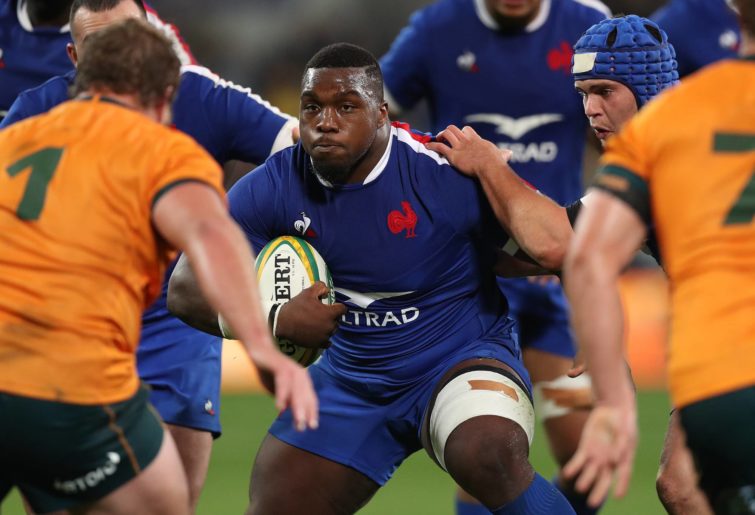
(Photo by Graham Denholm/Getty Images)
I am convinced that rugby is suffering from an oversupply which is leading to most unions and clubs suffering financially and economically. The model should change so that rugby returns to generating the expectations it had before. For that to happen we need to have a little less of it so that we have players more rested and better trained. That would produce a more attractive show.
For this, the club tournaments should be shorter, and we should have a single international window where the nations can put their best on the field with good preparation.
Brett
The answer to this is ‘no’, but on the other side of the coin, we only have to look at the way the ‘nations championship’ has progressed no further than an idea already revised several times over. There’s also the way the club world cup concept has been watered down from a mooted annual competition that would negate the need for the Champions Cup to a tournament held maybe once every four years at best – and even that looks like dying the same quiet death as did the world 12s concept.
So we have these two three-week windows in July and November in which clubs can’t hold players back and the international game is supposed to be front and centre. But look what’s happening this year: the Top 14 is still being played this weekend – the first of the international window – as is the Premiership in England, where there’ll be another round next weekend as well.
Only the United Rugby Championship has actually stopped for the length of the international window this season. But how long before that changes? How long before the French and English comps just keep going on throughout?
It seems to me that if those comps want to keep going, they just will, and probably with the backing of their respective national unions.
And World Rugby, looking more and more like a gentleman’s club than professional sporting administration, will be powerless to stop them.
If there are still the two prescribed three-week windows in place by the time Australia hosts the RWC in 2027, I’ll be pleasantly surprised.
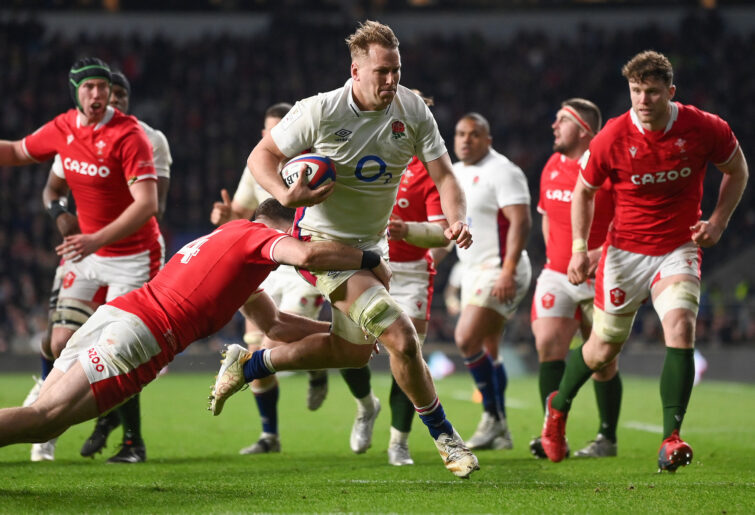
(Photo by Mike Hewitt/Getty Images)
Digger
An interesting question. My initial rather rude and cynical response to answer a question with another would be along the lines of: ‘what can they actually do?’.
While each nation has its own challenges to confront and agendas to follow, it would appear World Rugby is herding cats to try and achieve more from this section of the international season.
Until everyone is rowing the waka (canoe, kayak, dingy) in the same direction, I suggest we just need to be happy with what we get, as change would be a waste of emotional energy for fans at least to consider and entertain.
Geoff
Ah, the elusive ‘global season’ rears its head again. Or not, as the case may be.
We are told, as we always are, that things are edging closer and that nations and club competitions are about to strike an accord where the interests of both – and the players – will magically be accommodated.
There’s less chance of that happening than Ian Foster being announced as New Zealander of the year. Or Israel Folau starting at 15 this weekend for the Wallabies.
By construct, World Rugby is a blancmange. A committee of nations, it lacks authority because too many important nations do not own their players. And it too often muddles over the areas of the game it does have jurisdiction over.
The trigger for change is private equity investors coming to the table looking to maximise their returns, carving up the whole rugby turkey. Until then, nations and clubs will continue to fight over the drumstick.
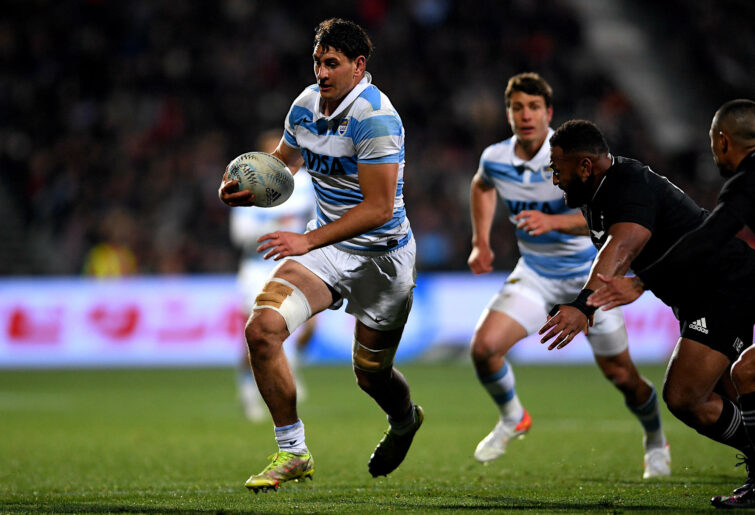
(Photo by Joe Allison/Getty Images)
Question 2: Where is your team currently ranked, and what does it say about your team’s current form line and/or the rankings system?
Harry
The Springboks are third, a point behind Ireland and less than a point behind France. This seems about right, and playing each in their homes will tell us a bit more.
If either Ireland or France loses to South Africa with a third-string 24-year-old flyhalf in control, they will deserve a tumble.
If the Boks lose both, they must accept they are in the second tier of the top tier and will have to get better to make the semi-finals next year either by selection or by tactics and coaching.
Nobes
The Pumas are currently eighth in the ranking system, which is extremely difficult for me to understand.
There is also the impact they have on the assembly of the pools for the RWC, where the ranking two years beforehand is applied for the tournament.
It is also worrying, due to what was expressed in the previous questions, that the results of the windows are taken into account to develop the ranking positions.
Whether Argentina deserves to be eighth or not is a difficult question to answer since it plays annually with the superpowers of the south. It is visited by only one team from the north in July, while it must face three teams from the Six Nations playing as visitors in November.
In summary, they face more nations as visitors than at home, and that doesn’t seem fair to me since playing in Argentina could lead to different results and therefore rankings.
The ranking usually directs Los Pumas to play the World Cup in the so-called death zone, reducing their chances of advancing.
Brett
So, the Wallabies are officially ranked sixth. This week.
Officially Australia is this week’s biggest climber in the World Rugby rankings, jumping three places from ninth and therefore placing themselves ahead of Uganda, Madagascar, Malta and Sri Lanka on the rapid risers charts after they all gained one place in the mid-40s.
Scotland, on the other hand, assumed Australia’s former ranking in dropping three places after the one-point loss, though the ‘biggest faller’ of the week was officially Croatia, who plummeted four places in the aforementioned mid-40s shuffle.
What does it all mean? God knows.
The official explanation speaks of a “points exchange system”, which in short equates to “whatever one side gains, the other loses”. I can kind of see what it’s trying to achieve, but when it changes so regularly and with such wild fluctuations, it’s hard to know how fair it is, how logical it is and, therefore, how seriously you should take it.
During February and March the southern hemisphere teams lose and gain places despite not playing. The opposite happens for the northern hemisphere teams in August and September. I don’t know if that’s fair or not, but it sure looks weird.
I suppose the rankings help in terms of creating a headline after a shock win or loss and for anyone trying to build a case to sack a coach, but they’re really the only times they seem to be referred to.
The rankings are there – in theory – to remove reliance on subjective judgements and ‘gut feel’. But in reality our gut feel is generally closer to the mark.
Which doesn’t really say much about the rankings at all, does it.
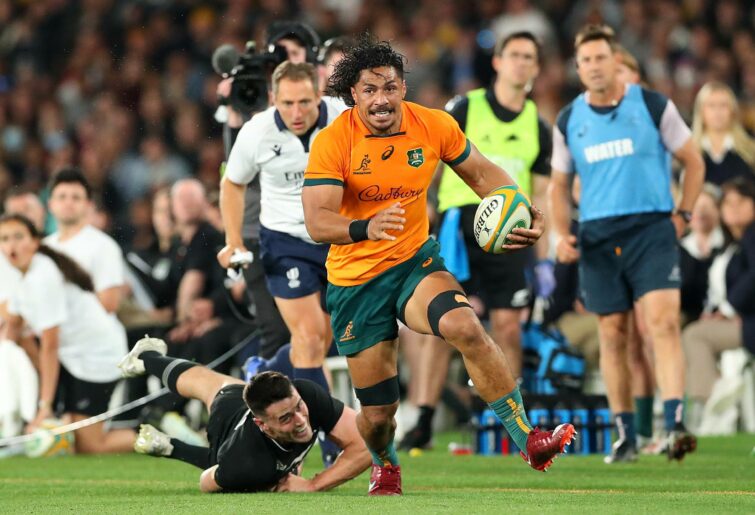
(Photo by Kelly Defina/Getty Images)
Digger
I don’t personally put much stock in the rankings.
How do you entertain that the All Blacks, who won the recent Rugby Championship in this part of the world, are still behind the Springboks as a result, a side who they split both their matches in South Africa with?
Was it because NZ dropped a game against Argentina at home that South Africa did not? But then the All Blacks won both matches against Australia, which South Africa did not. But one of those matches was in New Zealand and both of South Africa’s were in Australia. How does one judge such things?
Obfuscation aside, the rankings are probably about right, and the All Blacks’ fall down the ladder is rightly deserved considering their efforts against the three currently ranked above them.
That said, I struggle with taking the rankings seriously given the seemingly chaotic and confused scheduling that takes place. How have NZ and England not played a match since the 2019 semi?
England haven’t been to NZ since 2014. The Scots have not had a match against them since 2017, and it’s been 20-odd years since they visited NZ. Yet Ireland and Wales seem to be on a constant Kiwi diet.
I’m unsure how anyone can take these rankings seriously with such blatant variances in the playing schedule.
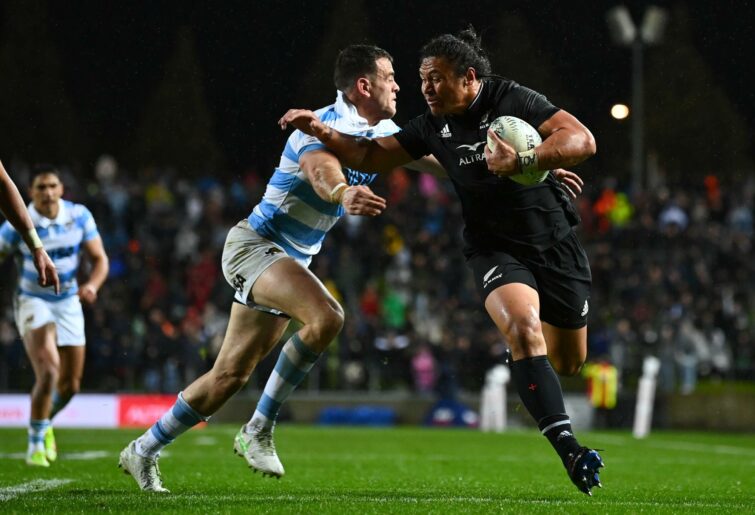
(Photo by Hannah Peters/Getty Images)
Geoff
Regular readers will know I care little for the World Rugby rankings.
There’s a tournament every four years to sort out who is top dog, and while everyone is naturally interested in between times to get a gauge on where their team sits, no artificial Duckworth-Lewis-Stern-style system can adequately rank teams who play each other intermittently or, in many cases, not at all.
For what it’s worth, New Zealand is ranked fourth, which is in the ballpark if you subscribe to the view that there are five teams – Ireland, France, South Africa, New Zealand and England – that are on a level above the others.
A week ago Australia was ranked ninth and Scotland sixth. Blair Kinghorn tugs a penalty attempt slightly left, and now this week Australia is ranked sixth and Scotland ninth! In between, Wales and Argentina are like forwards milling around halfway during a kicking duel, watching the ball sail back and forwards over their heads. Don’t take these rankings too seriously, folks.
If we can say that Australia is ranked somewhere between sixth and ninth, in the second level of teams, then that feels about right. And we get a chance this weekend to get a feel for what extent there is a gap between the two levels.
Over to you.
Does more need to be done to ensure the November (and July) Test windows provide the best international contests?
And what do you make of your team’s current ranking, and the rankings system in general?

































































































